
The Brox Sisters were an American trio of singing sisters, enjoying their greatest popularity in the 1920s and early 1930s.

The Brox Sisters were an American trio of singing sisters, enjoying their greatest popularity in the 1920s and early 1930s.
The sisters were Lorayne (born Eunice, November 11, 1901 – June 14, 1993), Dagmar (later Bobbe) (born Josephine, November 28, 1902 – May 2, 1999), and Patricia (born Kathleen, June 14, 1904 – August 27, 1988). They were born in Iowa and Indiana, grew up in Alberta and Tennessee, and retained Southern accents during their performing careers. The sisters began a singing career as a trio in Canada, first appearing as child performers in Mother Lang's Children's Show. [1]
The family name "Brock" was changed to "Brox" for theater marquees. [2]
The Brox sisters began touring the Vaudeville circuit in the 1910s in the United States and Canada. At the start of the 1920s they achieved success in New York on the Broadway stage. [3] Near the end of the decade they relocated to Los Angeles. The act broke up in the early 1930s after the sisters got married. They made their final professional reunion appearance on radio in 1939.

The trio performed in Irving Berlin's Music Box Revue from 1921 to 1924, at the New York Theatre. Berlin's hit song "Everybody Step" was written for and debuted by the sisters. [4] They recorded a number of Berlin compositions, including "Bring on the Pepper," "How Many Times," "Lazy," "School House Blues," "Some Sunny Day," and "Tokio Blues."
In 1925 and 1926, they performed on Broadway in the musical comedy The Cocoanuts , with the Marx Brothers. In 1927, they appeared in the Ziegfeld Follies of 1927 at the New Amsterdam Theatre with comedian Eddie Cantor.
The Brox Sisters were among the earliest artists to appear on Warner Bros.' Vitaphone sound shorts in the late 1920s. They were featured in three productions: Glorifying the American Song, Down South (both in 1928), and the 6 minute short, Down South in 1929. None of the features currently exists in full audio and visual format, with research underway to locate missing visual or audio components. [5] Down South exists in camera negative at the Library of Congress and a scruffy Vitaphone disc was located by Ron Hutchinson of the Vitaphone Project, who raised funding for a restoration at UCLA Film & Television Archive circa 2018.
In 1929, they appeared in the film The Hollywood Revue of 1929 , performing the songs "Singin' in the Rain" with Cliff Edwards and "Strike Up the Band" in the finale of the first act.
In 1930, the sisters appeared in the film King of Jazz . They performed the song "A Bench in the Park", with Joe Venuti and Eddie Lang, and with The Rhythm Boys (Bing Crosby, Harry Barris and Al Rinker). In that year they also appeared in the film Spring Is Here in which they performed the song "Crying for the Carolines".
They performed "Falling in Love Again" in the movie Hollywood on Parade (1932).
The sisters also made radio broadcasts in the 1920s. They recorded a series of phonograph records for Brunswick Records and Victor Records, as well as appearing on sides for Columbia.
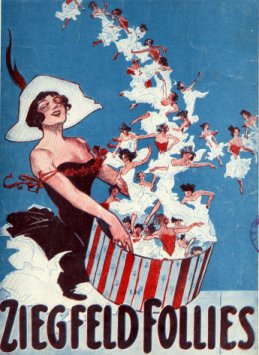
The Ziegfeld Follies were a series of elaborate theatrical revue productions on Broadway in New York City from 1907 to 1931, with renewals in 1934, 1936, 1943, and 1957. They became a radio program in 1932 and 1936 as The Ziegfeld Follies of the Air.
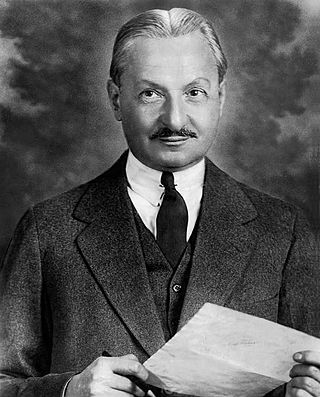
Florenz Edward Ziegfeld Jr. was an American Broadway impresario, notable for his series of theatrical revues, the Ziegfeld Follies (1907–1931), inspired by the Folies Bergère of Paris. He also produced the musical Show Boat. He was known as the "glorifier of the American girl". Ziegfeld is a member of the American Theater Hall of Fame.
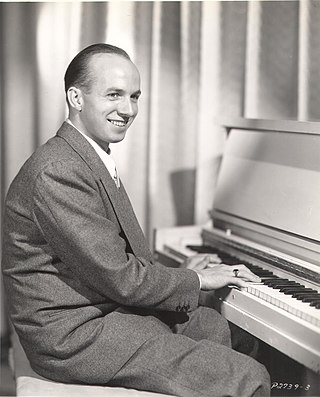
James Van Heusen was an American composer. He wrote songs for films, television, and theater, and won an Emmy and four Academy Awards for Best Original Song. Many of his compositions later went on to become jazz standards.

Gallagher & Shean was a highly successful musical comedy double act in vaudeville and on Broadway in the 1910s and 1920s, consisting of Ed Gallagher (1873–1929) and Al Shean (1868–1949); Shean was the maternal uncle of the Marx Brothers.

Beatrice Gladys Lillie, Lady Peel, known as Bea Lillie, was a Canadian-born British actress, singer and comedic performer.
A revue is a type of multi-act popular theatrical entertainment that combines music, dance, and sketches. The revue has its roots in 19th century popular entertainment and melodrama but grew into a substantial cultural presence of its own during its golden years from 1916 to 1932. Though most famous for their visual spectacle, revues frequently satirized contemporary figures, news or literature. Similar to the related subforms of operetta and musical theatre, the revue art form brings together music, dance and sketches to create a compelling show. In contrast to these, however, revue does not have an overarching storyline. Rather, a general theme serves as the motto for a loosely related series of acts that alternate between solo performances and dance ensembles.

Marilyn Miller was one of the most popular Broadway musical stars of the 1920s and early 1930s. She was an accomplished tap dancer, singer and actress, and the combination of these talents endeared her to audiences. On stage, she usually played rags-to-riches Cinderella characters who lived happily ever after. She died suddenly from complications of nasal surgery at age 37.

William Perlberg was an American film producer.
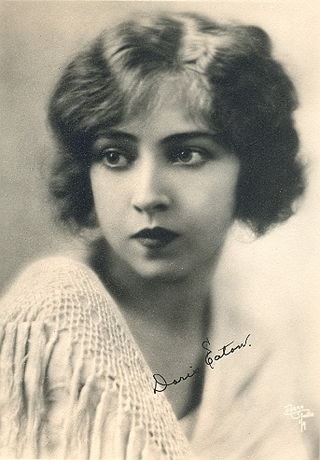
Doris Eaton Travis was an American dancer, stage and film actress, dance instructor, owner and manager, writer, and rancher, who was the last surviving Ziegfeld Girl, a troupe of acclaimed chorus girls who performed as members in the Broadway theatrical revues of the Ziegfeld Follies.

Mary Eaton was an American stage actress, singer, and dancer in the 1910s and 1920s, probably best known today from her appearance in the first Marx Brothers film, The Cocoanuts (1929). A professional performer since childhood, she enjoyed success in stage productions such as the Ziegfeld Follies. She appeared in another early sound film, Glorifying the American Girl (1929). Her career declined sharply during the 1930s.

Sally is a 1929 American Pre-Code film. It is the fourth all-sound, all-color feature film made, and it was photographed in the Technicolor process. It was the sixth feature film to contain color that had been released by Warner Bros.; the first five were The Desert Song (1929), On with the Show! (1929), Gold Diggers of Broadway (1929), Paris (1929) and The Show of Shows (1929).. Although exhibited in a few theaters in December 1929, Sally entered general release on January 12, 1930.

Charles Eaton was an American juvenile stage and film performer, and the most important performing male member of the sibling clan once referred to as The Seven Little Eatons. At one time or another, all the siblings appeared in The Ziegfeld Follies each year between 1918 through 1923.

Anna Rebecca Pennington was an American actress, dancer, and singer who starred on Broadway in the 1910s and 1920s, notably in the Ziegfeld Follies and George White's Scandals.

Pearl Eaton Levant was an American Broadway performer, actress, choreographer, and dance supervisor of the 1910s and 1920s.
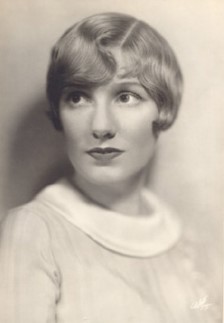
Marion Harris was an American popular singer who was most successful in the late 1910s and the 1920s. She was the first widely-known white singer to sing jazz and blues songs.
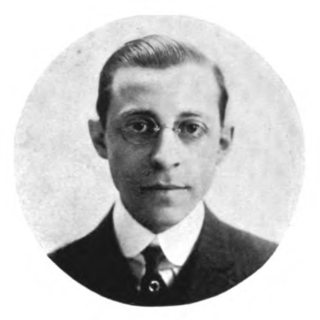
David Stamper was an American songwriter of the Tin Pan Alley and vaudeville eras, a contributor to twenty-one editions of the Ziegfeld Follies, writer for the Fox Film Corporation, and composer of more than one thousand songs, in spite of never learning to read or write traditional music notation. He may have written "Shine On Harvest Moon", a claim supported by vaudeville performer and writer Eddie Cantor. He was also a charter member of the American Society of Composers, Authors and Publishers or ASCAP.

Lillian Lorraine was an American stage and screen actress of the 1910s and 1920s, and a prominent Ziegfeld Girl in the Broadway revues Ziegfeld Follies during the 1910s.

"A Pretty Girl Is Like A Melody" is a popular song written by Irving Berlin in 1919 which became the theme song of the Ziegfeld Follies. The first verse and refrain are considered part of the Great American Songbook and are often covered as a jazz standard.

"Limehouse Blues" is a popular British song written by the London-based duo of Douglas Furber (lyrics) and Philip Braham (music).

Samuel Howard Ash was an American vaudeville performer, singer, and movie actor who appeared in minor roles in over 200 films, including It's a Wonderful Life.